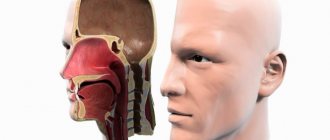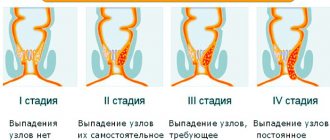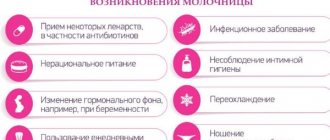Sinusitis is a disease in which the inflammatory process is localized in the area of the maxillary sinuses. It affects one or both maxillary cavities. The cause of the development of the disease is most often viral or bacterial infections, allergies, chronic otitis media or dental diseases.
To prescribe adequate therapy, you must consult an otolaryngologist.
Symptoms of the disease appear depending on its form. In acute sinusitis, the patient's body temperature rises and headaches appear, worsening when bending over or in the evening hours. Also, as a result of inflammation of the mucous membrane of the maxillary sinuses, nasal congestion and purulent discharge occur.
In the chronic form of the disease, the symptoms are not so pronounced. The patient has a chronic runny nose and nasal congestion, dull facial pain and cough. How to treat sinusitis in adults, medications or traditional methods?
Main groups of medications
Treatment for this disease involves draining the contents from the sinuses and rinsing the nasal cavity to destroy the causative agent. They fight maxillary sinusitis using complex therapy in several areas:
- stop the development of pathogenic microorganisms;
- eliminate the block in the excretory anastomosis, relieve swelling and help mucus and pus exit the sinuses into the nasal cavity;
- relieve pain;
- alleviate the symptoms of intoxication: reduce elevated body temperature, eliminate aches in the joints and muscles, etc.;
- suppress the severity of the inflammatory process.
Conservative treatment involves the use of antibiotics with antiseptics, anti-inflammatory and vasoconstrictors in the form of drops, sprays and solutions.
In severe cases, they resort to puncturing the sinuses, washing them and treating them with an antibiotic. Surgical methods for treating this disease are fraught with complications, such as secondary infection, the formation of polyps in the nose or a fistulous passage between the nasal cavity and the maxillary sinuses, as well as the occurrence of relapse of the disease.
For drug therapy, effective medications are used that can not only effectively help with treatment, but also prevent the disease from becoming chronic:
- antibiotic medications;
- medicines with anti-inflammatory and anti-edematous properties;
- mucolytics with decongestant properties;
- painkillers and antipyretic pills;
- topical agents for sanitizing the nasal cavity, which have antimicrobial properties;
- immunomodulators;
- agents with combined action.
If, in the complex treatment of inflammation of the mucous membrane of the maxillary sinus, all of the above groups of drugs are used, then the disease can quickly recede and the patient’s well-being will become better on the third day.
Sinusitis: identify to cure
Before looking for an effective cure for sinusitis, it must be identified. The symptoms of sinusitis are quite specific and it is not so difficult to do:
- headache;
- constant runny nose;
- difficulty breathing;
- temperature 38 degrees;
- general weakness.
At a doctor’s appointment, sinusitis is checked this way: the patient slowly leans forward. A nagging pain to the right and left of the wings of the nose indicates sinusitis. For a reliable diagnosis, an x-ray is performed: accumulations of pus are visible in the image.
Symptoms of sinusitis
The three stages or forms of sinusitis vary in the severity of symptoms:
- Subacute lasts more than a month, similar to a cold.
- Acute lasts up to a month during the epidemic season, all symptoms are pronounced.
- Chronic is constantly present, either fading or exacerbating with a cycle of 6-8 months.
Different reasons can cause different types of sinusitis with differences in the color of the mucus and the necessary treatment:
| View | Features of discharge | Causes | Peculiarities |
| Viral | Colorless, without pus and blood | ARVI | Easily treated, but without treatment it becomes bacterial |
| Bacterial | With yellow to dark green pus | Entry of foreign objects; diseases of teeth and gums; with weak immunity | Can be caused by a variety of bacteria and requires treatment |
| Fungal | Pus with an unpleasant odor, sometimes blood | Antibiotic use, weakened immune system | Aggravated in combination with bacteria or viruses, can provoke polyps |
| Traumatic | With blood clots | Head injuries | The cause of sinusitis is not mucus, but blood blocked in the sinus after injury |
Main causes of sinusitis
Drugs with anti-inflammatory and anti-edema effects
Medicinal products belonging to this group are intended to reduce blood flow in a place that is a source of inflammation. They constrict blood vessels, which reduces swelling of the mucous membrane of the nasal cavity. This eliminates the unpleasant condition of nasal congestion.
The use of decongestants is necessary for the treatment of any type of sinusitis, especially if we are talking about a disease with an allergic component.
Such medications (drops and nasal sprays) are necessary to relieve swelling, moisturize the mucous membrane, and fight infection. The following types of decongestant medications that have anti-inflammatory properties are distinguished.
Anti-inflammatory tablets for sinusitis
NSAIDs typically have antipyretic and analgesic properties and therefore help reduce some symptoms.
Analgesics commonly used to relieve symptoms of inflammation in the maxillary sinuses are Ibuprofen, Aspirin, and Acetaminophen. The daily dosage of such drugs depends on how intense the pain is. But under any circumstances, you should not take them for more than 7 days in a row without first consulting your doctor.
The main principle when taking painkillers is to use small doses. First you should drink 0.5 tablets, and only if the desired effect is not obtained, is it permissible to use the second part. This rule must be followed by everyone, and especially by older people, children and those who are light.
[], [], [], [], [], [], []
Ibuprofen
In case of sinusitis, Ibuprofen tablets are used as a symptomatic anti-inflammatory drug in addition to the main treatment course. The medicine is used to relieve pain and also as an antipyretic.
For diseases of the paranasal sinuses and nasal cavity, the medicine helps relieve swelling, thus clearing the path for air through the respiratory organs. As a result, breathing through the nose becomes easier, mucus comes out more freely, incl. and from clogged sinuses. In addition, the drug allows you to relieve pain and a bursting sensation that occurs with advanced sinusitis (in this case, the filled nasal cavity puts pressure on nearby tissues, irritating the nerve endings).
Paracetamol and Aspirin
Paracetamol, analgin and aspirin help eliminate moderate and mild pain, and in addition act as an antipyretic and anti-inflammatory agent. These drugs will allow you to quickly get rid of discomfort and pain before the main treatment methods begin to take effect.
Topical nasal rinses
Solutions purchased at a pharmacy or prepared at home are used to rinse the nasal passages. They clear them of pathological secretions and relieve nasal congestion.
For sanitation, saline solution, antiseptic drugs (Miramistin, Furacilin), chamomile decoction, calendula or herbal infusions, as well as a solution based on sea salt (Dolphin, Salin, Humer) are used.
Vasoconstrictors
It is impossible to treat sinusitis with vasoconstrictor drugs alone, but it is very difficult to do without them, since the swollen mucous membrane blocks the nasal passages, and the sick person cannot breathe. Vasoconstrictors should be used for any form of sinusitis; they improve communication between the sinuses and the nasal passages, eliminate nasal congestion, which speeds up recovery.
We recommend treating sinusitis by supplementing the main treatment with Xylometazoline, Oxymetazoline or Phenylephrine. You can use analogues of these drugs.
You can be treated with vasoconstrictor drugs for less than one week, strictly observing the dosage regimen and frequency of use.
Combination drugs
Such products have many medicinal properties, providing a complex effect on the body. The most popular are:
- "Cinnabsin" is a herbal preparation that belongs to homeopathy. It has an anti-inflammatory and immunostimulating effect. These lozenges contain echinacea extract, goldenseal and other beneficial components.
- Ibuklin is a combination of paracetamol and ibuprofen. This medication has an analgesic, anti-inflammatory effect, and relieves fever.
Sinuforte
Recently, herbal preparations have become very popular. One of them, Sinuforte, is based on an extract of the poisonous plant cyclamen and belongs to homeopathic preparations. These are not tablets, but a powder that is diluted with water and then dropped into the nose like regular nasal drops. Suitable for all forms of sinusitis.
The product is effective, it instantly relieves swelling and has an anti-inflammatory effect, irritating the receptors, increasing the secretion of liquid secretion, which in turn thins thick mucus and facilitates its exit from the inflamed sinuses.
Sinuforte gives good results if you treat sinusitis with it from the first day or take it as a prophylaxis for a prolonged thick runny nose. Please note that sinusitis can be treated with the drug Sinuforte only if the anastomosis has good patency.
The advantage of the drug is that a sick person does not need to take other drops and tablets for sinusitis, which are addictive and cause side effects. Sinuforte treats the cause of the disease, eliminates headaches and facial pain, reduces fever, and relieves nasal congestion. All symptoms of the disease disappear on the third day of treatment.
Traditional medicine
Among the most popular folk recipes intended for the treatment of this disease are the following:
- Nasal drops from propolis tincture. To prepare them, mix equal parts vegetable oil with a 20 percent alcohol tincture.
- Nasal drops from Kalanchoe juice. They are used for acute and chronic sinusitis, both in adult patients and in children, starting from the age of six. The juice is used in its pure form. It is instilled into the nasal passages three times a day (twice for children). Its action is to irritate the mucous membrane, causing an attack of sneezing. This helps thin and remove mucus from the nose.
- Compresses with a decoction of bay leaves. A napkin is moistened in the broth and applied to the bridge of the nose. You can cover the top with a terry towel to keep the heat as long as possible. The procedure is carried out in the evening after sanitization of the nasal passages. The course of treatment is six days.
- Inhalations using sea buckthorn oil. The duration of the procedure is about fifteen minutes. You will need ten drops of oil per pan of boiling water.
- Aloe juice nasal drops. To obtain them, you need to mix the plant juice with honey in equal parts. Instillation is done twice a day, two drops into each nasal passage.
Modern medicine today has a fairly wide selection of drugs for the conservative treatment of maxillary sinusitis. To obtain a positive effect, they must be used in combination. Despite the ability to purchase most of these drugs at a pharmacy without a prescription, resorting to self-medication is unacceptable.
Only a doctor should prescribe medications. Their thoughtful choice will allow the patient to bypass surgical methods of treating this disease, will prevent the exacerbation of the disease and its possible complications.
Antibiotics for the treatment of sinusitis
Antibiotics for sinusitis are prescribed if the disease lasts more than 5 days, and the health of adults only worsens.
Effective drugs:
- Macrolides - Azithromycin, Macropen, Clarithromycin;
- Broad spectrum - "Amoxicillin";
- Fluoroquinolones - Sparfloxacin, Levofloxacin.
Antibiotics are prescribed by a specialist based on the characteristics of the disease and the patient’s body.
Recommendations for treatment and regimen
During the treatment period, doctors recommend bed rest, since the acute period of the disease is characterized by severity and severe intoxication. If this is not possible, it is important to limit physical activity and avoid sudden turns and bends. The drinking regime during illness should be plentiful - this is necessary to prevent mucus from drying out and facilitate its removal from the maxillary sinuses.
Ibuprofen to reduce fever for sinusitis
If the patient has a fever, you can use medications with an antipyretic effect: Ibuprofen, Paracetamol, etc. The use of antihistamines will help to quickly cope with nasal congestion and reduce the risk of allergic reactions, which often appear in response to the use of antibiotics and other potent drugs.
Important! If the pain when bending or turning does not go away or intensifies, you should consult a doctor, since there is a high probability of stagnation of purulent contents in the maxillary sinuses. If the patient is not provided with timely assistance, a decrease or complete loss of vision and a number of other serious consequences are possible.
How is sinusitis treated?
Only an otolaryngologist will tell you how and how to treat sinusitis after examining the patient. To do this, you need to make an appointment with a specialist who will conduct an examination, do all the necessary tests, identify the etiology of the disease and select effective treatment methods that eliminate sinusitis and its symptoms, including headaches. Only then can you find an effective medicine for acute sinusitis.
In addition to a visual examination, a differential diagnosis of sinusitis may be prescribed: x-ray, ultrasound or CT. Only a thorough examination will make it possible to accurately determine the degree of development of the disease, the pathogenic microflora that causes it, the localization of inflammation, and effective treatment that relieves sinusitis.
If conservative treatment does not give a positive result, a puncture of the maxillary sinuses is performed. During its implementation, a puncture is made and a fistula is created, facilitating the outflow of pus from the sinuses. After this, the headache, swelling of the nasal passages and fever disappear.
Antibiotic therapy
The most common cause of sinusitis is the penetration of pathogenic bacteria into the maxillary sinuses. During their life, thick mucus and pus accumulate there, which make breathing difficult and provoke a characteristic nasal voice. To destroy pathogenic bacteria, antibiotics are used in the form of suspensions, capsules or tablets. Experienced otolaryngologists do not prescribe these drugs at the initial stage of sinusitis, preferring to use external agents and antiseptic solutions.
But when diagnosing an extensive inflammatory process, the use of antibiotics is necessary. Since the results of laboratory tests have to wait several days, broad-spectrum antibacterial agents are included in the therapeutic regimen.
Penicillins
Antibiotics of this series have recently been rarely prescribed for the treatment of sinusitis, since many microorganisms have developed resistance to them. This statement is especially relevant for staphylococci - a common cause of the inflammatory process. It is practiced to prescribe combination drugs:
- Augmentina,
- Panclava,
- Amoxiclava.
They contain clavulanic acid, which prevents the development of resistance in microorganisms. Children are treated with antibiotics in the form of sweet suspensions with a pleasant aroma, and for adults tablet forms are produced in various dosages.
Cephalosporins
Second and third generation cephalosporins are widely used in the treatment of bacterial sinusitis, despite the synthesis of more effective drugs. This type of antibiotic exhibits therapeutic activity against the following microbes:
- Haemophilus influenzae;
- Moraxell;
- Klebsiella;
- streptococci.
Commonly prescribed cephalosporins include Cefixime, Ceftriaxone, and Cephalexin. The disadvantages of these antibacterial drugs include a large number of side effects: allergic reactions, dyspeptic disorders, decreased concentrations of white and red blood cells.
Antibiotics from the macrolide group quickly and effectively destroy sinusitis pathogens of bacterial origin
Macrolides
Most pathogenic bacteria are not capable of developing resistance to macrolides. These drugs are not intended for long-term use. The average duration of the therapeutic course does not exceed five days. If there is a need for further use, otolaryngologists recommend that patients take short breaks. The most famous representatives of the macrolide group are:
- Azithromycin,
- Clarithromycin,
- Josamycin.
Macrolides are characterized by side effects similar to cephalosporin antibiotics. You can use medications while pregnant or during lactation only as prescribed by a doctor and under his supervision.
Fluoroquinolones
These drugs are considered reserve drugs, that is, they are used when other antibiotics are ineffective. An experienced otolaryngologist or therapist will never prescribe fluoroquinolones to a child due to the likelihood of microorganisms developing resistance to them. In the event of severe infections (for example, tuberculosis), such drugs will successfully destroy the pathogens. What fluoroquinolones treat complicated sinusitis in adults:
- Lomefloxacin,
- Ciprofloxacin,
- Ofloxacin,
- Levofloxacin,
- Norfloxacin.
Fluoroquinolones disrupt the stability of cell membranes of pathogenic bacteria, preventing their growth and active reproduction.
Objectives of sinusitis therapy
Sinusitis therapy is a long process that requires an integrated approach. Drugs for the treatment of sinusitis in adults are selected taking into account the characteristics of the inflammatory process. The main goals of therapy:
- effect on pathogens;
- diluting secretions accumulating in the paranasal sinuses and improving its outflow;
- reducing swelling of the nasal mucosa, ensuring free nasal breathing;
- elimination of pain and other unpleasant sensations;
- prevention of the development of purulent complications, including lesions of the sphenoid bone;
- preventing the spread of infection to other sinuses;
- activation of the body's own defenses.
Possible complications
If sinusitis is not treated, meningitis, meningoencephalitis and other brain diseases of an infectious nature may develop. Correctly selected drugs in the treatment of sinusitis will help eliminate complications.
The constant presence of purulent discharge in the paranasal sinuses can lead to infection of other organs and tissues, causing secondary infection and the development of pathological processes.
Only comprehensive treatment of sinusitis, prescribed by a doctor, will help eliminate the danger of complications. Treatments for sinusitis must have different effects, since the disease has different symptoms.
Medicine for sinusitis
Treatment of a runny nose is often taken lightly, considering it a symptom of a cold. Meanwhile, if the process is started, the consequences can be very serious. Diseases occur that are accompanied by headaches, difficulty breathing, and fever. These include sinusitis and sinusitis. At the first signs, you should immediately consult a doctor. Only he will correctly prescribe medicine for sinusitis. Sometimes, in order for improvement to occur, complex treatment according to a specific regimen is required.
What is sinusitis and how to treat it
With sinusitis, the sinuses, which are located to the right and left of the bridge of the nose, become inflamed. The hole that connects them to the nose is blocked. Mucus and germs remain in the sinuses. Inflammation can have different causes and differ in the nature of its course. Whether the disease is viral, bacterial or fungal, in each case the doctor prescribes his own medicine for sinusitis.
The disease is severe when both sinuses become inflamed. Sometimes left-sided or right-sided sinusitis occurs. At the same time, the headache becomes unbearable when tilting and turning the head. In addition, there is a list of characteristic symptoms:
- nasal congestion;
- temperature increase;
- purulent discharge;
- distension in the nasal area.
At the initial stage, agents are used that relieve swelling and make breathing easier. Most often these are vasoconstrictor drops. If the disease is accompanied by some kind of infection, the doctor prescribes antibiotic therapy. Physiotherapy, which improves blood circulation in the sinuses, gives good results. For these procedures, laser, electromagnetic field, and electrophoresis are used.
With chronic sinusitis, depressions appear in the mucous membrane in which pus accumulates. This sharply worsens all symptoms. To alleviate the patient's condition, they resort to puncturing a hole through which the pus is sucked out. However, modern medications make it possible to treat sinusitis without a puncture. These include anti-inflammatory antibiotics.
What happens if sinusitis is not treated? The chronic form of the disease causes serious complications that are poorly treated. Inflammation of bone tissue is possible, blood poisoning, eye and throat diseases are possible. The maxillary sinuses are located near the brain. There is a possibility that inflammation of its membrane will occur - meningitis and even death.
Home treatment methods for adults
How to cure sinusitis forever? To do this, it is important to take medications for sinusitis, folk remedies, and perform physical therapy. Prevention of sinusitis plays an important role. Popular medications include:
- Rinofluimucil in the form of a spray to relieve swelling.
- Naphthyzin nasal drops to ease breathing.
- The hormonal agent Polydex in the form of a spray improves the outflow of pus.
- Sinupret is taken in tablet form - it is a good antiviral agent.
Drops in the nose
If you have sinusitis, you should not self-medicate. Even drops should be used as prescribed by a doctor. There are medications that make breathing easier - these are vasoconstrictors Naphthyzin and Galazolin. In the acute form, Polydex, a medicine with antibacterial properties, helps. It constricts blood vessels and reduces inflammation, suppresses microbial activity. Drops in the nose with an antibiotic - Neolicin - quickly relieve swelling.
Complex nasal drops - Sinuforte - give effective results. The drug acts instantly. Swelling decreases and pus thins. The patient immediately feels better. Sinuforte are drops for sinusitis based on cyclamen. Due to the fact that natural raw materials are used, they have a high price. Cheaper analogs are also used in treatment - Gaymorin, Salkhino.
Antibiotics
What antibiotics to take for sinusitis? These medications are prescribed for severe inflammation, high fever, and purulent discharge. Antibiotics are taken in the form of tablets, suspensions, and injections. They not only fight diseases, but also prevent complications. One of the most effective of them is Amoxicillin. For children, a local antibiotic, Bioparox, has a good effect.
Antibiotics help treat sinusitis caused by germs. It is not prescribed if the cause of the disease is allergies or fungal infections. You should carefully consider the prescription of drugs, because the use of antibiotics has contraindications:
- pregnancy;
- liver and kidney diseases;
- breastfeeding;
- allergy to the components of the drug.
Nasal sprays
Nasal sprays should only be taken as a treatment for sinusitis if prescribed by a doctor. These products are addictive, so they are not used for more than two weeks. The drug is injected into each nostril, while the other is pinched. Based on their effect on the body, sprays are divided into 5 groups:
- vasoconstrictors;
- saline;
- based on corticosteroids;
- hormonal;
- complex.
Vasoconstrictor medications relieve swelling and restore drainage from the sinuses. These include: Rinofloimucil, Ximelin. Saline nasal sprays are used to rinse the nose and reduce swelling. The sinuses are cleared of bacteria. This group includes the drugs Aquamaris and Aqualor. Sprays containing corticosteroids reduce swelling and improve sinus ventilation. These include Aldecin, Nazarel.
Hormonal sprays improve the outflow of pus and reduce swelling. They act locally, so they are allowed to be used even when treating a child. These are the drugs Avamis, Nazanex. Sinuforte is considered a drug with complex effects. When using it, the sinuses are quickly cleared, and the patient feels better. The complex product IRS-18 improves immunity.
Other medications
Severe headaches with sinusitis are relieved by paracetamol and ibuprofen. With allergic sinusitis, it is often difficult to determine the cause, so medications are taken to boost immunity. Washing is indispensable in the treatment of sinusitis. It removes mucus from the sinuses. How to rinse your nose with sinusitis? Furacilin solution and herbal infusions give excellent results.
Homeopathic remedies
An effective method for treating sinusitis is the use of homeopathic medicines. These medications are popular because they have no side effects. They have a very small concentration of active ingredients, so they require a long time to use. The use of these medications for sinusitis is more effective in the chronic form of the disease.
The doctor selects the active ingredient of the drug depending on the symptoms:
- Arsenicum (arsenic) is prescribed for burning pain, nausea and vomiting.
- Belladonna (belladonna) is used for pain in the eye sockets and eyebrows, which worsens when bending over.
- Potassium bichromate - for purulent discharge.
- Mercury relieves headaches and sensitivity to touch.
Folk remedies
In addition to conservative treatment methods with medications that are sold in pharmacies, there are folk remedies. These include:
- Rinsing the nose with solutions of soda and propolis.
- Warming up with hard-boiled eggs.
- Inhalation using a nebulizer with medications or herbal infusions.
- Compresses made from bay leaf infusion.
- Instillation of menthol oil.
Video: treatment of sinusitis in children
Treatment of sinusitis in a child should be taken seriously. Why does it occur in children, and is it necessary to give injections? Do I need to go to the hospital or will treatment at home help? Why there is no point in doing an x-ray during diagnosis. Does a puncture help in treatment? What to pay attention to when a child has a prolonged runny nose. Watch the video and a lot will become clear to you.
Reviews of products for sinusitis
Yana, 25 years old: I got sinusitis when I was 3 months pregnant. I was afraid that the medications could harm the child. The gynecologist recommended rinsing with sea salt. At first I was afraid to do the procedure. But I was very surprised when I saw how much mucus was washed out. After 5 days, my nose began to breathe well, my head stopped hurting. I advise mothers to use it.
Anna, 30 years old: My daughter fell ill, the doctor diagnosed sinusitis and prescribed antibiotic treatment. I remembered my grandmother's remedy. I boiled 2 eggs and applied them hot through a napkin to my nose. After warming up, the child began to breathe more freely. Improved mucus separation. I advise you to undergo comprehensive treatment, and use traditional methods in addition to medications.
Olga, 45 years old: I have chronic sinusitis. I suffered from headaches that worsened when bending over. The smell of pus haunted me. They did a painful puncture, the doctor prescribed antibiotics. After a course of injections I felt much better. I do not advise anyone to self-medicate sinusitis. It’s better to go to the doctor, he will tell you how to treat correctly.
sovets.net>
Causes of sinusitis
Most often, sinusitis in its acute and chronic forms is caused by gram-positive and gram-negative bacteria:
- Gardnerella vaginalis;
- Lamblia spp.;
- Entamoeba histolytica;
- Trichomonas vaginalis;
- Bacteroides spp.;
- Veillonella spp.;
- Giardia intestinalis;
- Fusobacterium spp.;
- Prevotella (bivia, buccae, disiens);
- Clostridium spp.;
- Peptostreptococcus spp.;
- Eubacter spp.;
- Peptococcus spp.
They actively multiply in mucus, the outflow of which from the nasal passages worsens, resulting in purulent foci of inflammation.
Sinusitis can also be caused by injuries, allergies and untreated rhinitis. Bacterial flora of a pathogenic nature in such cases becomes a secondary cause of the development of the disease. Based on the causes of the disease, the doctor selects from a large list of medications the most suitable means for the effective treatment of sinusitis
How are decongestants used?
Decongestants or vasoconstrictors are one of the most popular medications today, as they are inexpensive and quickly eliminate symptoms of illness.
In the form of drops or sprays, they are often used as part of self-medication, which often leads to the development of complications, but few people know that such medications are also produced in tablet form.
Each medicine in this group is used only as part of symptomatic therapy, that is, it does not produce the slightest therapeutic effect.
Vasoconstrictor drops help eliminate swelling of the mucous membranes by reducing the lumen of blood vessels, which leads to the elimination of nasal congestion and easier breathing.
The drugs in this group include medications based on:
- phenylephrine: Rinza, Coldact Flu Plus, Coldex-Teva, Coldrin, Lorraine, Orinol Plus, Rinocold, Theraflu Extratab, Anakold, etc.;
- pseudoephrine: Clarinase, Rinasec, Tylenol, etc.
You should not use any decongestant medications for more than 5–7 days. Otherwise, the risk of developing addiction to them and complications increases.
In addition, most of the drugs listed above contain not only vasoconstrictor components, but also non-steroidal anti-inflammatory drugs and antihistamines, so they should be used only as prescribed by a doctor.
to the content?











